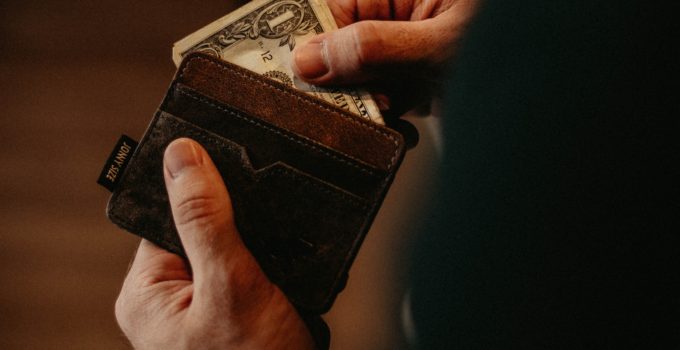We are all aware of the importance of investing money to allow us to retire on our own terms someday. You may remember the first time you were introduced to the power of compound interest. I recall the charts shown to me as a teenager. I remember hearing that by starting early on investing with as little as $100/mo, I could become a millionaire by 50-60 years old. Compound interest is indeed a powerful thing that we should absolutely be taking advantage of.
“Compound interest is the eighth wonder of the world. He who understands it, earns it…he who doesn’t…pays it.”
Albert Einstein
The problem we have, however, is that things tend to change a bit between high school and our early to mid-20s. In high school we have desire to invest but we have no income. After college graduation or getting a full time job, we have income but our circumstances may or may not allow us to invest. Before we know it, a few decades of our working years have passed without investing. This decision can cause us to miss out on thousands, if not millions, of dollars in compound interest. Regardless of your circumstances, If you are ready to invest, it is not too late to make the right choices with your money. I want to give you 3 financial decisions to make before investing.
Have an Emergency Fund
Many people start out investing for the long-term, which is how we should be investing. The excitement of being able to retire young and travel the world gives us a tremendous amount of motivation. Life is great and our accounts are growing until suddenly, that rainy day finally comes. It’s the day your transmission in your car gives out. It could also be the day you got the news you were being laid off, that was my story. Before we invest, we must always be prepared for the “rainy day” by having an emergency fund, or savings account.
According to research conducted in 2018 by E-Trade Financial, nearly 60 percent of investors ages 18-34 say they already have taken money from their retirement account. You may be asking, “Why this is such a bad thing?” The reason you don’t want use your retirement savings as an emergency fund is for a few reasons:
- If you take money from your traditional IRA or 401(k) before age 591/2, you will pay income taxes AND a 10 percentage early withdrawal penalty, minus a few exceptions.
- Tapping into retirement funds early means you basically eliminate your ability to earn compound interest over several years. Remember what Einstein said about this, and he’s a fairly intelligent guy.
Instead of borrowing from or utilizing your retirement account for emergencies, start building your emergency fund. You should have at least 3 months of expenses in savings at minimum if possible. Some experts suggest at least $1,000 in savings until you are able to pay off your debt. The ultimate objective is to save on a consistent basis, at minimum 10% of each paycheck.
Reduce or Eliminate Your Debt
The second financial decision you should make before investing is to work toward reducing or eliminating your debt completely. It is very difficult to fully justify investing when you are still dealing with high interest consumer debt. The average rate of return for most retirement accounts will hover somewhere between 5% to 10% depending on your risk tolerance. The average annual percentage rate (APR) on credit cards is roughly 18%, while some can be much higher than the average.
You can see why it doesn’t make a ton of sense to invest heavily while in debt, even with a great return. If compound interest is working against you because of the consumer debt you have, it is best to get rid of it first. I do understand that’s easier said than done. It is not an easy task to focus all in on removing debt before investing, because it may feel like you aren’t making progress. What would be worse, however, is making huge strides in your investments only to be forced to cash them out and pay your debts. If you want to be a successful investor, reduce or eliminate your debt first.
Educate Yourself
As a former Financial Advisor, I believe I speak with much credibility on this topic. I witnessed first hand how trusting people were with their money. It was surprising to me the number of people who listened to my advice even though they had more life experience than I did. I did my best to be honest and fully educated so that I could provide great service, but I certainly did not have all of the answers.
One of the most important things you can do before investing is to educate yourself. You spend a great deal of your life working to earn a good paycheck, so it is best not to invest it until you understand where it’s going. If you are currently investing in a retirement plan, you should regularly review your results and outlook. The financial advisor that you are working with should be willing to fully explain your options without pressure to give them your money. If not, you need to find a new advisor.
There are several ways for you to learn more about investing before making a decision of where to put your money. You can pick up a book on the topic from your local bookstore. There are also articles, blogs, and even videos online that can help. My personal suggestion is for you to consider signing up for a financial coaching session. You will have the opportunity to ask specific questions, thoroughly review your current financial status, and formulate a plan to reach your investment goals. Furthermore, you will save a lot of time trying to find the right resources if you aren’t familiar with investing already.
“Formal education will make you a living; self-education will make you a fortune.”
Jim Rohn
If you want to receive more updates like this, don’t forget to subscribe and share with someone you know. For more support on your journey to success follow me on Twitter, LinkedIn, Instagram, Facebook, and YouTube. You can also consider signing up for one of my coaching sessions here. Let’s start your journey to becoming more.



